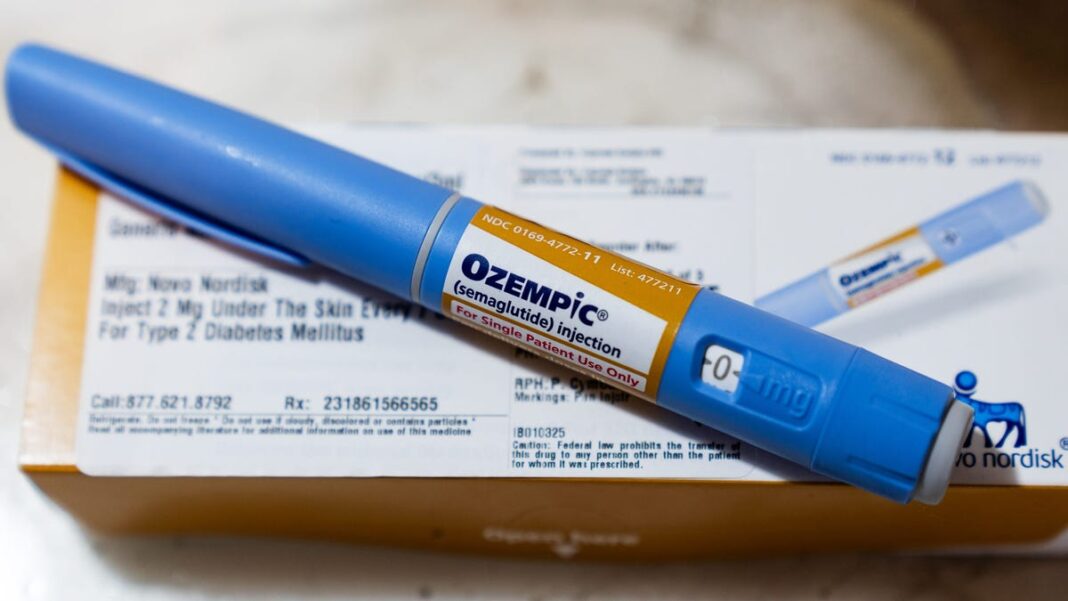Weight loss medications Ozempic and Wegovy may help reduce alcohol dependency, according to research
Ozempic and Wegovy, popular weight loss drugs primarily used by individuals with diabetes, obesity, and heart risks, have prompted health experts to explore their potential in battling alcohol addiction.
A recent study published in JAMA Psychiatry indicates that glucagon-like peptide-1 (GLP-1) medications, including semaglutide and liraglutide, may effectively help manage alcohol abuse. Researchers in Sweden analyzed data from over 250,000 individuals with alcohol-use disorder and discovered that those who used GLP-1 medications experienced a lower likelihood of being hospitalized.
Experts not involved in the research described the findings as significant and noted that there has been ongoing investigation into this area. However, they cautioned that Ozempic has not yet been established as a replacement for the three FDA-approved treatments for alcohol dependency.
“These drugs show great potential,” said Lorenzo Leggio, a clinical researcher and chief at the National Institute on Drug Abuse (NIDA) and the National Institute on Alcohol Abuse and Alcoholism (NIAAA). “Nevertheless, we have not yet reached a conclusion to affirm their effectiveness.”
Leggio emphasized the necessity for additional research, screening, and treatment advancements in addressing alcohol addiction. As of 2023, nearly 29 million Americans are reported to have alcohol use disorder, affecting approximately 1 in 10 individuals aged 12 and older, according to NIAAA data.
However, only 2% of those suffering from alcohol addiction receive treatment, Leggio pointed out.
“The number of deaths associated with alcohol is substantial, even surpassing those related to opioids,” Leggio remarked, referencing the ongoing addiction crisis that initially began with prescription pain relievers and later expanded to the misuse of illicit fentanyl.
This finding is not unprecedented.
A 2022 study involving 127 participants revealed that the GLP-1 medication exenatide decreased alcohol consumption among individuals with obesity. Additional studies demonstrated that these weight-loss medications can lower alcohol intake in animal subjects. However, researchers cautioned that more comprehensive evidence is essential to validate the use of these drugs in treating alcohol and drug dependence.
In the Swedish study, researchers identified over 133,000 individuals hospitalized for alcohol addiction from January 2006 to December 2023. About 4,500 patients using semaglutide, available as Ozempic and Wegovy, had the lowest hospitalization risks. Additionally, around 2,500 patients taking liraglutide, marketed as Victoza and Saxenda, exhibited a slightly higher hospitalization risk.
Another striking observation was that alcohol-dependent patients using either weight-loss drug had lower hospitalization rates compared to those using any of the three approved medications: disulfiram, acamprosate, and naltrexone.
However, experts stressed that this research does not definitively prove that these popular weight-loss medications effectively reduce alcohol consumption.
Sarah Church, a clinical psychologist and executive director at Wholeview Wellness in New York City, emphasized the need for more vigorous studies.
“It’s vital to obtain results from a randomized controlled trial that compares GLP-1 medications with the current FDA-approved treatments for alcohol dependency before making any conclusions about their effectiveness,” Church noted.
Leggio’s team at NIAAA and NIDA is currently recruiting participants for a study that will randomly assign alcohol-dependent individuals to receive either semaglutide or a placebo. This study, which will monitor participants for five months, is not expected to conclude until 2026.

